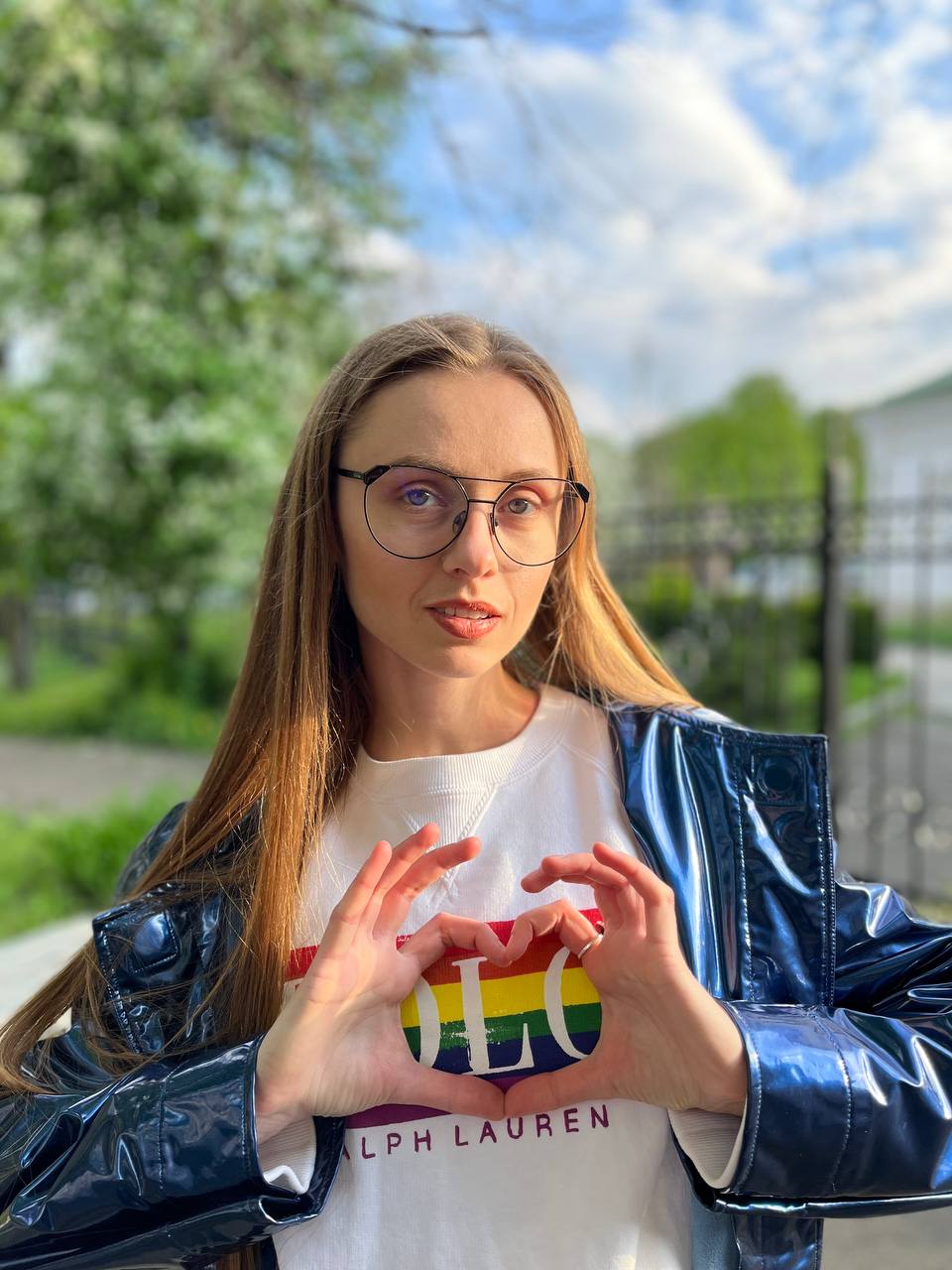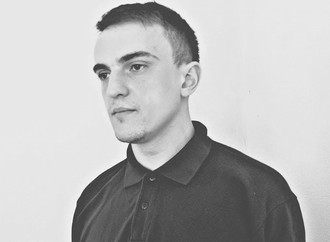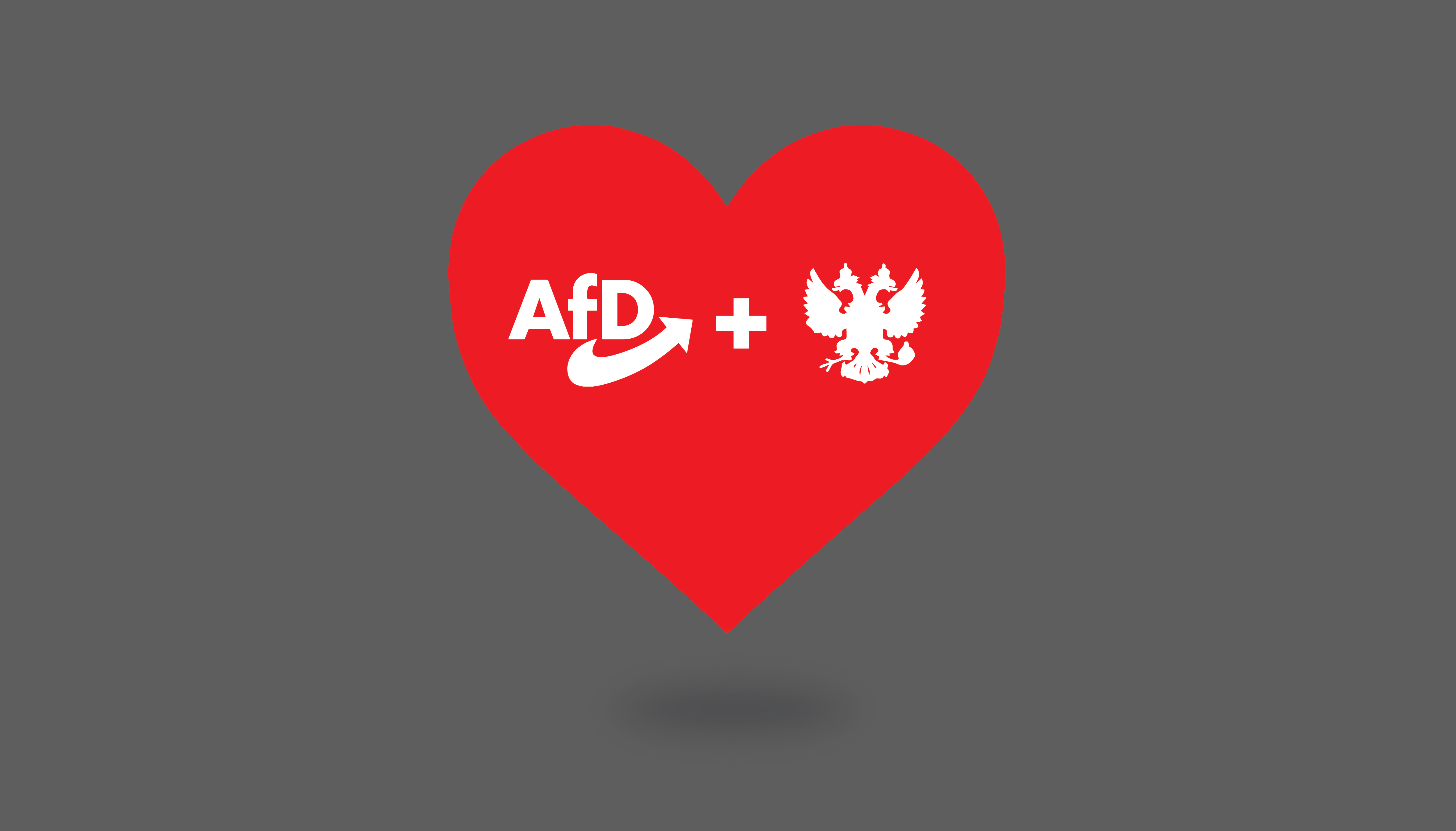

Українською читайте тут.
Germany is one of the leaders (second only to the United States in terms of financial assistance) in supporting Ukraine's fight against Russia's terrorist actions. However, there is a force in German politics that holds a completely opposite position. A recent journalistic investigation has found evidence that Russia is cooperating with the far-right Alternative for Germany (AfD) party and is tasking it with preventing the supply of German weapons to Ukraine to counter Russian aggression. As of early June, this political force came in second in opinion polls. In the next elections in 2024, for the first time in the history of postwar Germany, a far-right party may win. Strangely enough, the party that praises Hitler and Wehrmacht soldiers is the closest ally of Putin's Russia, which claims "denazification" as the goal of its anti-Ukrainian agitation. What makes this paradox possible and what anti-Ukrainian, very similar to pro-Kremlin messages this party is pushing is discussed below.
After the Second World War, the Federal Republic of Germany (Germany) went through the process of denazification and for decades was a model for Europe of adherence to the anti-fascist consensus: neo-fascist parties were practically excluded from social and political life, as such political movements were fragile and ineffective. Somewhere on the margins was the National Democratic Party of Germany, Nationaldemokratische Partei Deutschlands (NDP) (renamed Die Heimat in June 2023), which was considered the successor to the National Socialist Workers' Party, which was led by Hitler. However, it was closely monitored by the Bundesamt für Verfassungsschutz (BfV), the Federal Service for the Protection of the German Constitution.
In 2013, the AfD party was created, which, in order to get into the Landtags (state parliaments) and the Bundestag (state parliament), abandoned the outright Hitlerism inherent in the NDP, but retained the entire "gentleman's set" of right-wing radicalism - various kinds of xenophobia (racism, anti-Semitism, Islamophobia), Euroscepticism, and violence against political opponents.
In the socialist German Democratic Republic (GDR), denazification was much less intense than in the capitalist Germany. The eastern states have now become the electoral base for both the AfD and the far-left Die Linke party. The socio-economic gap that still exists between the "Wesse" and "Ossie" (West and East Germans) fuels nostalgia for the GDR in the eastern regions, and the far-right and far-left offer an anti-liberal, anti-capitalist project that appeals to many East Germans.
In March 2021, the BfV granted the AfD the status of "suspected of right-wing extremist aspirations," and the AfD's right-wing nationalist association, the Wing, was declared a right-wing extremist, so the entire party is now under the agency's supervision. The party's activists have repeatedly been involved in scandals with the endorsement of the Third Reich, anti-Semitic and anti-immigrant statements, etc.
In the 2013 elections, the AfD received 4.7% of the vote and failed to enter the Bundestag. But the results of the next election in 2017 (two years after the migration crisis) shocked Germany: The AfD gained 12.6% and won 94 out of 709 seats in the federal parliament. In 2021, the AfD did slightly worse (10.3% and 83 seats). In 2023, the AfD's popularity is growing: according to polls, the far-right has consistently gained more than 20% of support, having already overtaken the ruling Social Democratic Party and second only to the CDU/CSU, once led by Angela Merkel. The next Bundestag elections are scheduled for 2025. The AfD ambitiously assures that it will fight for the post of federal chancellor. However, all German parties currently refuse to think about a hypothetical coalition with the far right. The AfD has already stated that after the election it will seek "the dissolution of the European Union or Germany's withdrawal from it."
The German far-right, sympathetic to the Third Reich, seemed to be farther away from the ideology of Putin's Russia with its sentiments about the "Great Victory"? In practice, however, the AfD is probably Europe's largest Putinversteher, or simply Putin's political allies.
Here, propagandists use the technique of "dialectical unity," where different sets of rules or criteria are applied to different groups or situations. Often this leads to unfair or inconsistent treatment, but such inconsistencies do not cause cognitive dissonance among propaganda consumers. In agitprop, dialectical unity can be used to present a situation as a complex interaction of forces, where the propagandists' point of view is portrayed as a balanced or rational middle ground. For example, Russia shifts the responsibility for the rise of neo-Nazi movements to the power elites in Europe, so the forces opposed to them are not recognized as hostile. It turns out that the opponents of the ruling elites in Europe, even if these opponents are openly sympathetic to the Third Reich, are identified by Russia as potential allies. In this way, Kremlin manipulators legitimize their position as the most reasonable or logical choice.
Russia, which claims to "denazify" Ukraine, where none of the right-wing radical parties can overcome the electoral barrier, at the same time strongly supports far-right forces in Germany. First, we are talking about Russia's proven financial support of the AfD in exchange for promoting Kremlin-friendly theses. Second, we can see the ideological shift of this German party towards the ideology of the "Russian world." Thirdly, we have documented the support of the AfD by Kremlin bots in order to increase the party's popularity among Bavarian voters. Let's talk about all this in turn.
On the hook for "Russian grants"
For a long time, the funding of the AfD by the Kremlin was only an assumption. However, everything secret eventually comes to light. In August 2023, The Insider and Spiegel conducted an investigation that proved Russia's direct funding of the German far right. The intermediary was the pro-Kremlin propagandist Vladimir Sergienko, a permanent resident of Germany who holds both German and Russian citizenship but appears on Russian political shows as a "German political scientist." Through Sergienko, AfD representatives "received texts of their speeches from Moscow, lobbied for Kremlin initiatives, and even sued their own government." Constantly traveling between Moscow and Berlin, Sergienko transported 9 thousand euros each time (the maximum amount of undeclared cash transportation across the border is 10 thousand euros). In this way, he was able to transport tens of thousands of euros. The money was also sent through a public organization controlled by Serhiyenko. The main purpose of this activity was to suspend the transfer of weapons, in particular Leopard tanks, to Ukraine through lawsuits. Indeed, on July 5, 2023, the AfD parliamentary faction filed a lawsuit against the federal government with the Federal Constitutional Court. The formal pretext is that the arms supply was not approved by the Bundestag, although German law does not require this.
In addition, according to the investigation, Sergienko coordinated with the curator the texts of speeches that were then published on behalf of German far-right lawmakers. They were based on pro-Russian narratives. Currently, German law enforcement agencies have taken an interest in this case, which threatens to prosecute several members of the Bundestag from the AfD.
"Russian World" in the ideology of the German party
Monetary support is not the only factor linking the AfD and the Kremlin. From the very beginning of its existence, the German far-right opposed the "dictates" of Washington and Brussels, and denied Germany's membership in the EU and NATO. The focus on Moscow as the other pole of power was perfectly suited to this context. If not Euro-Atlanticism, which has been structuring Europe since 1949, then what? There were few options: friendship with Russia and acceptance of its geopolitical concepts. For many years, the AfD's "Muscovite" of the AfD was rather latent. However, in 2023, the synchronization of the AfD's views with the Kremlin's narratives became fully apparent. On September 22, 2023, the Correctiv research center published an exposé summarizing the AfD's ideological rapprochement with the Kremlin. The AfD's ideology consistently introduces the concepts of "Eurasianism" and "multipolar world" - key theses of the Kremlin's foreign policy. For example, Hans-Thomas Tilltschneider, a member of the Landtag in Saxony-Anhalt, who repeatedly traveled to Russia even after its full-scale invasion of Ukraine, wrote on Facebook: "Supporters of transatlantic relations against Eurasians. We must change our views!"
The leader of the AfD list in the European Parliament elections scheduled for June 2024 is Maximilian Kra. It was he who voted against the European Parliament's resolution on Ukraine's EU candidate status and supported Putin's main agent in Ukraine, Viktor Medvedchuk. This year, Kra published a book entitled "Right-wing Politics - A Manifesto" in which he opposes "right-wing foreign policy" and a "multipolar world" to globalism, in which European countries allegedly "act as vassals of the United States."
Anti-Western rhetoric permeates the AfD's election program for the European Parliament elections. The right-wing populists blame the conflicts in Europe on the "dominance of non-European powers," hinting at the United States. They want Germany to seek observer status in the Shanghai Cooperation Organization (an organization created by Russia, China, and a number of Asian countries), as well as cooperation with the Eurasian Economic Union (EEU) initiated by Moscow.
Thus, instead of the banal idea of dissolving the EU or at least Dexit, Moscow offers the AfD broader horizons: integration with Russia, China, and post-Soviet countries. AfD ideologues, on the other hand, claim that they are merely followers of the policies of Chancellor Otto von Bismarck, who was at odds with France and Britain and supported an alliance with the Russian Empire.
Electoral push-up
Another aspect of cooperation between the AfD and Russia is electoral. The Kremlin has already become "famous" for interfering in the 2018 US elections. In a recent example, Slovakia accused Moscow of interfering in its parliamentary elections. We wrote about the alarming election results in Slovakia here. According to the German newspaper Bild, hundreds of "bots" - automated accounts - are campaigning on Twitter in support of the AfD, many of them with ties to Russia.
Cooperation between the AfD and the Kremlin in the Landtag election campaign can be traced to the participation of Russian bots. For example, on September 22, 2023, an account called @RenateBiller posted the following message: "If they stay in power, there will be a civil war in 5 years. #afd #election fraud #Islamization". The account was only a few days old and had only 16 followers. However, the message received 641 retweets and 643 likes in just 12 hours. Hundreds of the accounts that retweeted the message originated from Russia, had Russian names and consisted of random combinations of letters and numbers. Previously, many of them were spreading real estate and car ads in Russia and news about events there.
The DFRLab analytical report shows that the steady spread of right-wing messages suggests that "the bots are either run by an AfD supporter or the party paid the Russian botnet to spread the messages." Analysts attribute the botnet's activation to the regional elections in Bavaria, which will take place on October 8, 2023.
Correctiv's fact-checking investigation has noticed a similar trend on Facebook. The social network exposed a network of bots that has been creating pages with random names almost every day since February 2023 and then using them to pay for pro-Russian content, including propaganda media materials, authentic content from AfD politicians, and clones of German government websites. The network has thousands of users in Germany.
Anti-Ukrainian messages in the German AfD textbook
Thomas Galdenwang, head of the BfV, a body that monitors the observance of democratic law and order in Germany, said: "Some AfD members spread hatred and agitation against all kinds of minorities in Germany, especially migrants... We see that parts of the AfD also adhere to and promote anti-Semitic sentiments." "We also see that parts of the AfD are heavily influenced by Moscow and continue to spread Russian narratives," including Russia's full-scale war in Ukraine, he added. Here are some examples of these narratives.
The best way out for Ukraine is surrender. Speaking about the prospects for ending the war, party leader Tino Chrupalla compared Ukraine to Hitler's Germany and drew parallels with the Wehrmacht, which had to surrender.
Giving Ukraine weapons means contributing to the war. "As AfD, we reject arms supplies on principle. Exporting heavy weapons can be seen as entering a war. This must be prevented at all costs," tweeted Gerold Otten (AfD).
Sanctions harm everyone but Russia itself. The AfD regularly criticizes the economic sanctions imposed on Russia, arguing that they harm German and European businesses. Last fall, the party led its supporters to protest against the sharp rise in the cost of natural gas and electricity in Germany, mainly because the EU refused to buy Russian energy. One of the demands of the rally was to end the "economic war" with Russia.
Ukraine is losing the war. Tino Hrupalla said that Ukraine will "lose, as will Russia, and only the United States will win" at the end of the war. He also added that "any day when the war ends sooner, even with the loss of territory, will be a good day."
In addition, members of the AfD demonstrate their anti-Ukrainian position by regularly visiting the annexed Crimea, deliberately disregarding the key principles of international law, Ukraine's sovereignty and territorial integrity. On the eve of the fake "referendums" in the temporarily occupied territories in September 2022, a delegation from this party visited Russia and even planned to go to Donetsk and Luhansk regions, but due to strong criticism, canceled the visit to Donbas. In August 2023, Martin Kühne, a member of the Baden-Baden City Council from the Alternative for Germany party, twice drew swastikas and obscenities on cars with Ukrainian license plates. After being exposed, the official resigned.
At the dawn of its existence, the AfD positioned itself as a radical alternative to the existing course of the CDU/CSU and SPD. In most cases, it acted on the principle of "Baba Yaga against" in terms of centrist politics. But the dynamics of political development quickly brought the AfD into the clutches of the Kremlin. The ostentatiously "anti-fascist" Russia is in solidarity with the greatest threat to Germany since Hitler and is using it to its advantage. In general, the AfD's program is increasingly aligned with Putin's Eurasianism, making the AfD a de facto pro-Kremlin party in one of the European parliaments.


